We intend to publish a series of articles on a bi-monthly basis explaining what we do, how we do it and the volunteers that make it all happen. Over the coming months we will focus on Foot, Water, Drone and Bike search. This first article explores our core operation from call out to boots on the ground.
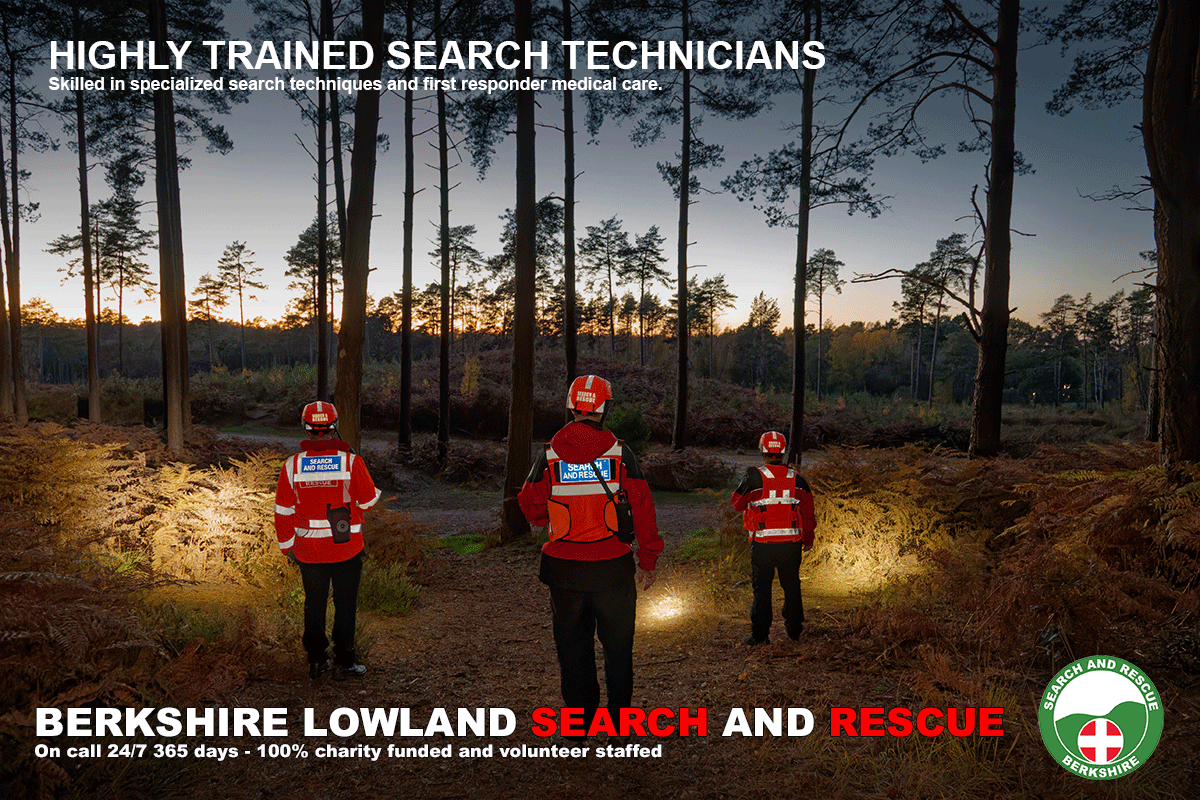
Sadly, Lowland Rescue does not enjoy the fame of the RNLI, and as such we have to work very hard just to raise the funds we need to exist. Hopefully these articles will help raise our profile just enough, so that we continue to receive adequate funding for the future. You can help here.
Foot Searches - Boots on the ground
Thames Valley Police (TVP) receive hundreds of high-risk missing person reports per year, many of these are resolved very quickly, however some cases are not resolved so quickly and give serious cause for concern. In many cases they call upon Berkshire Lowland Search and Rescue to provide professional missing person search capabilities.
With over 70 Search Technicians in our team, we can usually guarantee 30+ volunteers to be on call at any given time, day or night. Therefore, when we receive the call from the police our emergency response system will alert everyone of a callout, with a brief description of the missing person and a meeting point (RV).
Although the callouts may require the use of our various resources (foot, water, bike and drone), our foot search team is our primary resource in locating a Missing Person or “misper” as they are known.
INCIDENT CONTROL UNIT & PLANNING
Our Incident Control Unit (ICU), is normally first on the scene, this is our custom-built van that serves as our operations centre and is equipped with digital mapping, planning and communications systems. This gives our Search Planner vital resources and a base of operation to work from. Working alongside the Police Search Advisor (PolSA) they will plan according to the missing person’s profile, the circumstances surrounding their disappearance and the specifics of the search area.
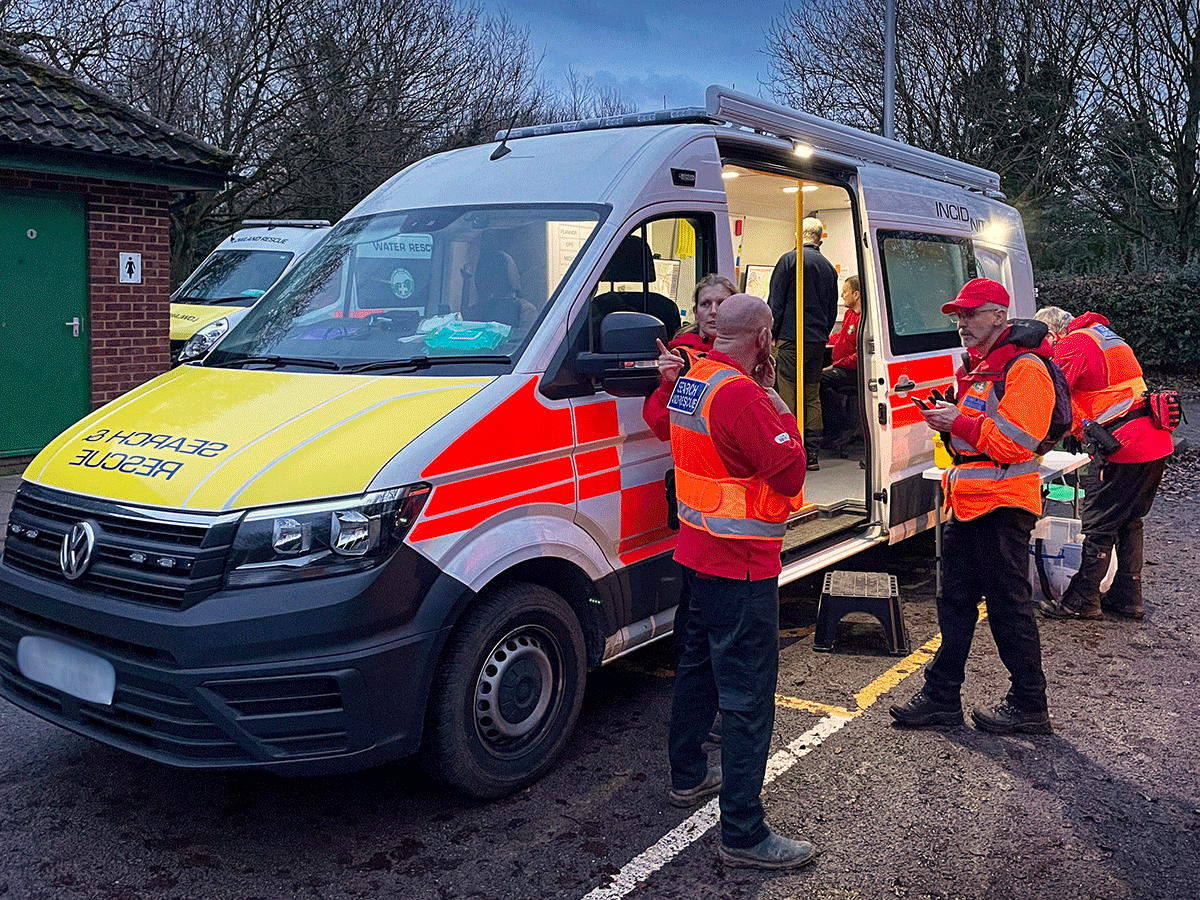 |
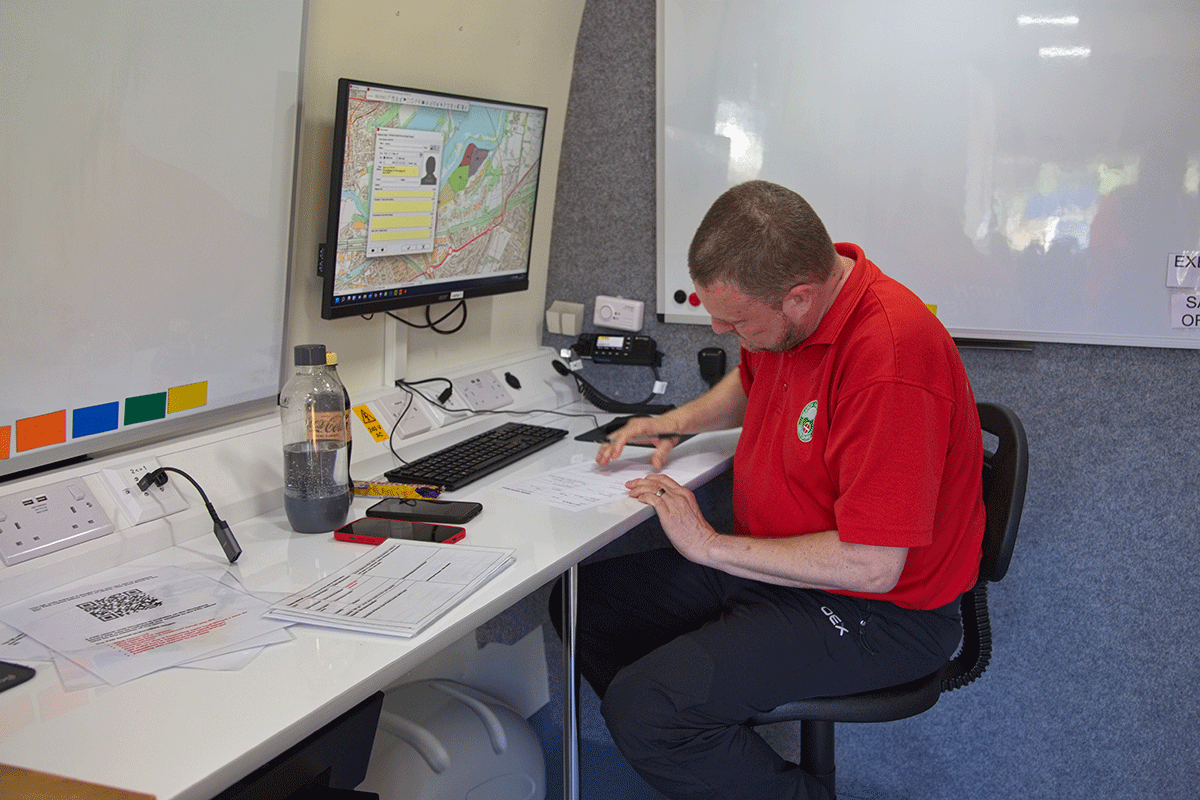 |
FOOT TEAM
Our prime resource during a search are our foot teams who are responsible for the systematic searching of the search area. Usually comprising several teams of 4 or more technicians, each with a specific role.
- Team Leader
- Communications
- Navigation
- Medic
Once the team leader has taken their briefing from the ICU, the team will be briefed and assigned the appropriate roles before setting off to the first search area coordinates. Depending on whether it is an urban or countryside search consideration must be made for the safety of the team. In the case of a countryside search they may encompass difficult terrain, heavy undergrowth, uneven ground and a variety of hazards, often in the hours of darkness, and in all weathers. Searches can take many hours, even days so it is vital that our technicians carry a variety of equipment to support their needs, this may include first aid kits, battery backups for phones etc, additional clothing, snacks and water.
Our hope is always that we can find the missing person as quickly as possible and bring them to a place of safety. If there is a need for medical intervention, we are trained to provide first responder emergency medical care, including CPR and the treatment of wounds etc. Our medics carry basic medical supplies; however we can request additional medical resources from our control vehicle including additional team members to support and secure the scene.
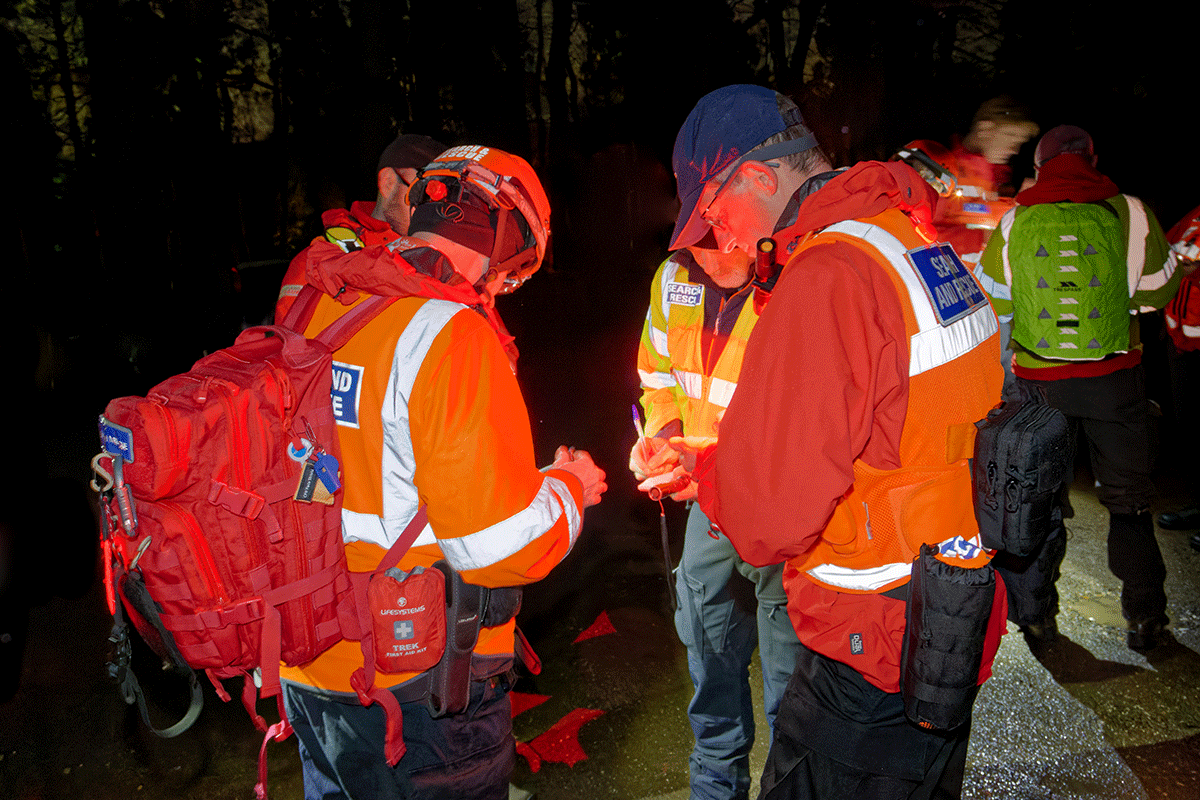 |
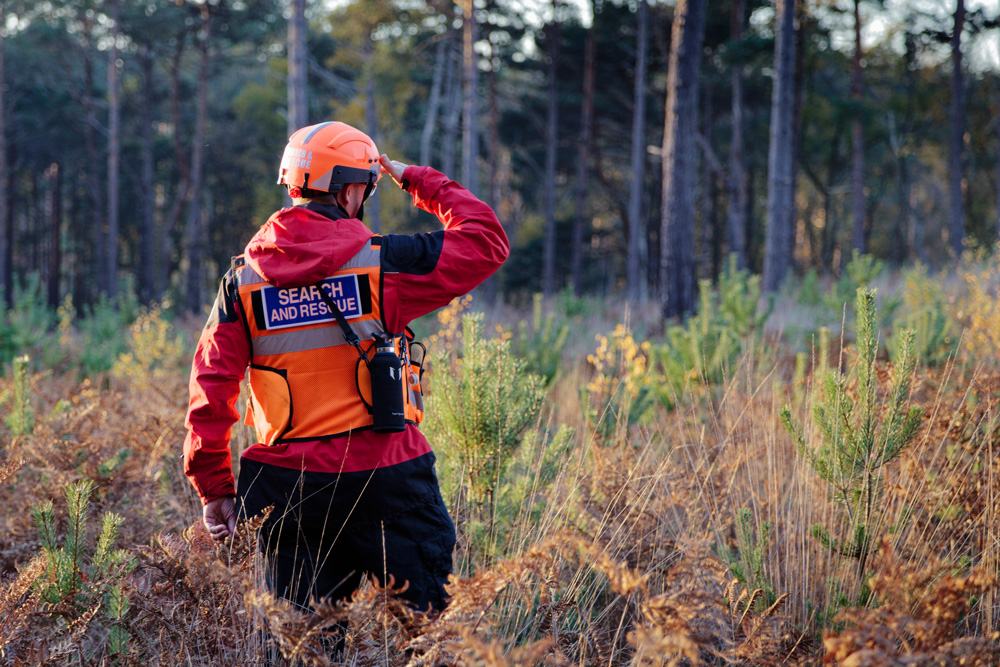 |
SEARCH TECHNICIAN - SKILLS AND TRAINING
Training to be a Search Technician involves a considerable amount of time and effort. It covers many areas including search techniques, missing person behaviour, specialist equipment and first responder medical care, and much more. Some of this is gained in an initial training course however some of the more advanced skills are learned during our weekly training sessions and specialist courses in Bank search, Bike search, Drone search and Forensic scene preservation etc. We are fortunate enough to have been in operation since 1979, consequently we have a wealth of very experienced members to draw from. Some of these are from medical, police and military backgrounds, and are able to share their inherent skills amongst the team.
All Search Technicians are police checked and trained to national standards as set by Lowland Rescue, and will be competent in the following….
- Basic missing person behaviour (child, despondent, suicidal or child)
- Types of search Hasty, Efficient and Thorough
- Search techniques, e.g., effective scanning of the area and searcher spacing.
- Search patterns - to ensure thorough coverage of the search area
- Personal safety attributed to hot and cold weather (hyper/hypothermia)
- Understand environmental dangers such as water hazards Casualty care / first responder medical care
- Rescue techniques - stretcher / airlift etc
- Preservation of scene and forensic evidence
- Communications - procedures and protocols
- Accurate recording and transmission of critical information
- Navigation using map and compass and digital mapping
- Use of PPE for protection against hazards and weather
- Working with Normal Operation Plans and Emergency Action Plans
- Working within a wider SAR operation and alongside other agencies
CALLOUTS
All of our technicians volunteer to give much of their time to respond as needed, knowing that callouts can come 24 hours a day, 7 days a week. They receive no wages, nor any remuneration for their equipment or fuel etc, just the satisfaction knowing that they were able to help someone in need, in a time of crisis.
BBC RADIO BERKSHIRE
Katherine Bett reports on Berkshire Lowland Search and Rescue for the Andrew Peach show on BBC Radio Berkshire: https://www.bbc.co.uk/sounds/play/p0d9g15c

